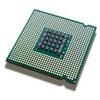CXL has been the emerging technology for expanding memory for both the host CPU and device accelerators with load/store interface. Extending memory coherency to the PCIe root complex makes the codesign more flexible in that you can access the memory with coherency using your near-device computability. Since the capacity demand with tolerable latency and bandwidth is growing, we need to come up with a new hardware-software codesign way to offload the synthesized memory operations to the CXL endpoint, CXL switch or near CXL root complex cores like Intel DSA to fetch data; the CPU or accelerators can calculate other stuff in the backend. On CXL done loading, the data will be put into L1 if capacity fits, and the in-core ROB will be notified by mailbox and resume the calculation on the previous hardware context. Since the distance(timing window) of the load instruction sequence is unknown, a profiling-guided way of codegening and adaptively updating offloaded code will be required for a long-running job. We propose to evaluate CXLMemUring the modified BOOMv3 with added in-core-logic and CXL endpoint access simulation using CHI, and we will add a weaker RISCV Core near endpoint for code offloading, and the codegening will be based on program analysis with traditional profiling guided way.
翻译:暂无翻译




